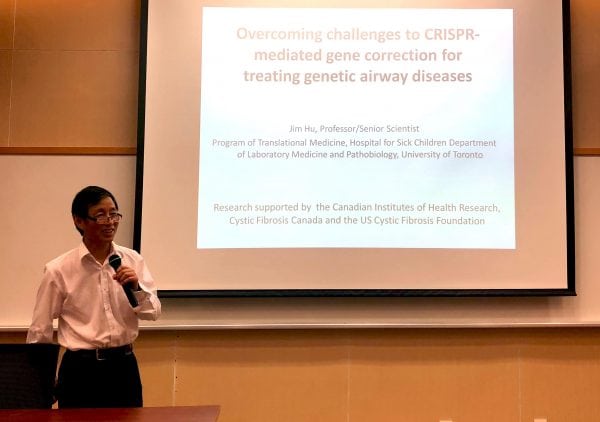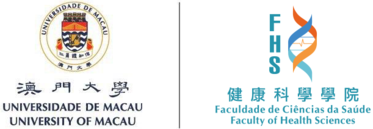| Talk title | Overcoming challenges to CRISPR-mediated gene correction for treating genetic airway diseases |
| Speaker | Prof. Jim Hu Professor and Senior Scientist University of Toronto |
| Date & Time | 21 September 2018 (Friday) 9:30-10:30 |
| Venue | Room G004, E12 Building (University of Macau) |
| Abstract | The CRISPR-cas9 system is attractive for gene therapy as it allows for permanent genetic correction, especially in organs or tissues where target cells turn over, such as in lung airways. However, as a new technology, Cas9 gene editing in clinical applications faces major challenges, such as safe delivery and gene-targeting efficiency. Cas9 is a foreign protein to recipient cells; its expression following gene editing may prompt the immune system to eliminate the gene-edited cells. To overcome these challenges, we have engineered a novel delivery system based the helper-dependent Adenoviral (HD-Ad) vector, which is capable of delivering genes to airway basal stem cells in vivo as we have demonstrated recently. Using this system, we have successfully delivered both a CRISPR-Cas9/guide RNA targeting the AAVS1 locus and the LacZ reporter or CFTR (cystic fibrosis transmembrane conductance regulator) gene as donor DNA to cultured cells. Because genes encoding CRISPR-Cas9 and guide RNA as well as the donor DNA are carried in the same vector, following donor DNA integration, the vector genome integrity is compromised, leading to elimination of CRISPR Cas9 expression. Thus, we show the feasibility of site-specific gene-targeting without undesirable Cas9 expression, providing a safer way to deliver CRISPR-mediated gene correction. In addition, we achieve stable CFTR expression and functional correction in cultured cells following successful gene integration. |


